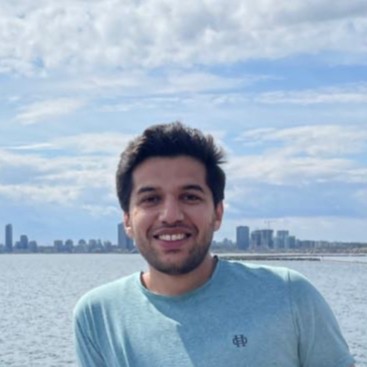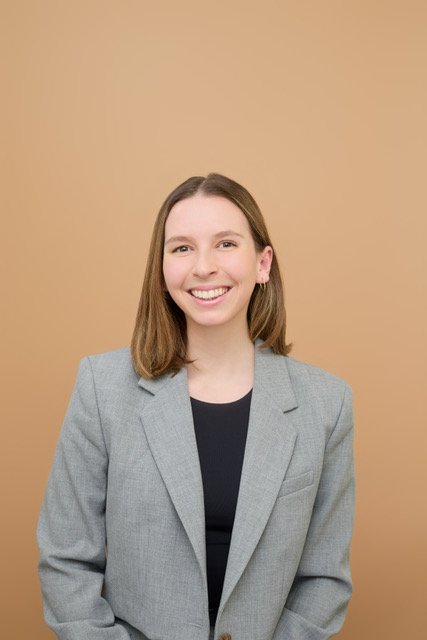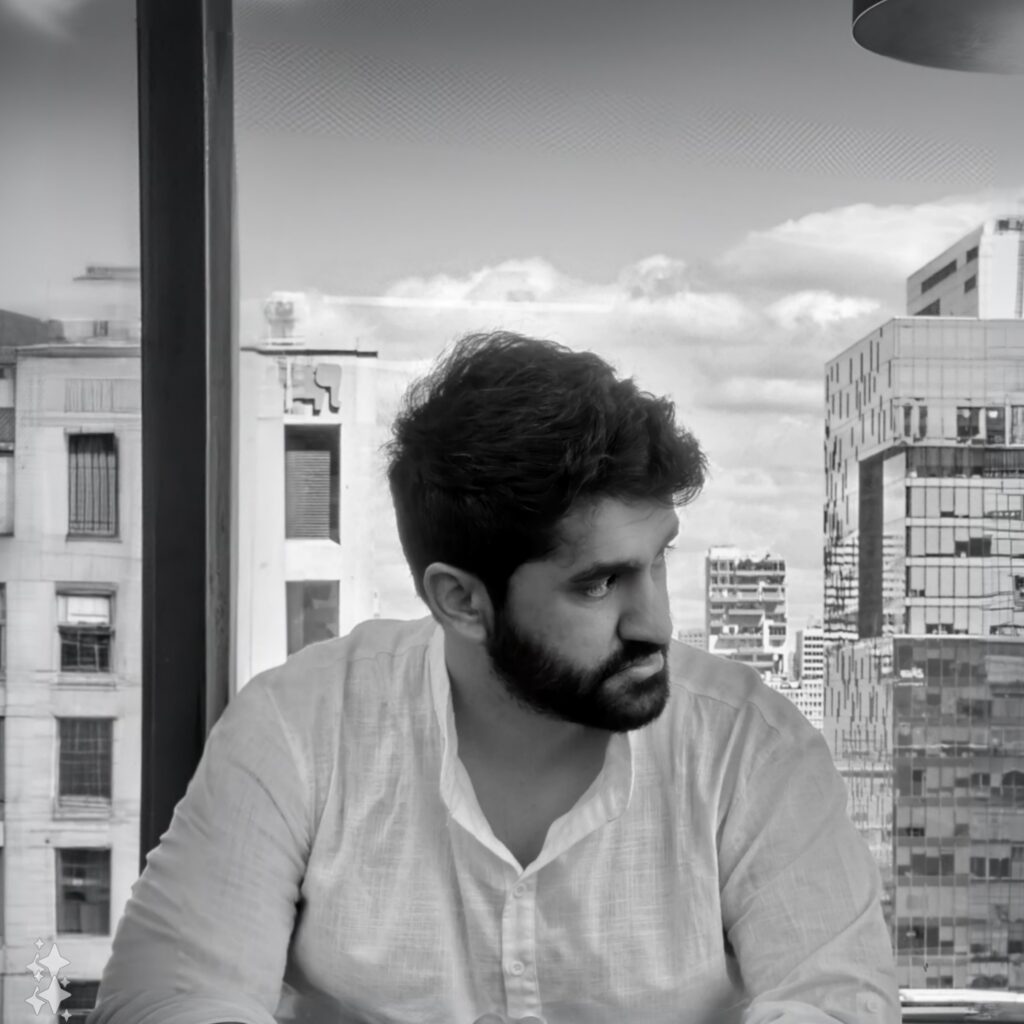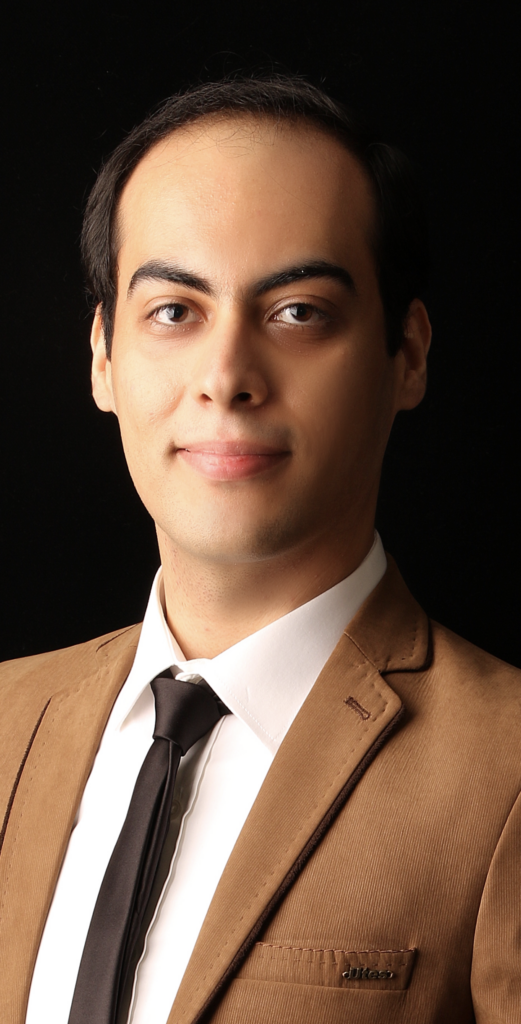By Diana Senwasane
Four aspiring researchers have completed York University’s Commercialization Fellowship program, advancing their potential to bring to market innovations driven by the latest in emerging technologies.
The Commercialization Fellowship program is aimed at preparing and supporting postgraduate students and postdoctoral fellows in understanding the process of transforming academic research into a product or service.
Funded by the Office of the Vice-President Research & Innovation, the program started in 2021, providing a group of annual fellows education on intellectual property (IP) and commercialization, exposure to industry and community partners, experiential learning opportunities, and a $7,500 stipend to use towards creating a proof of concept, testing their prototype and completing validation studies.
“Research commercialization can lead to real-world solutions, turning York community’s great ideas into products and services that provide both social and economic benefits,” said Suraj Shah, associate director of commercialization and industry partnerships.
Aspire spoke with this year’s fellows about the program and their products.
Hamed Esmaeili, mechanical engineering
Project title: An accelerated strategy to characterize mechanical properties of materials

A PhD student in the Department of Mechanical Engineering, Esmaeili’s research leverages the power of machine learning to create new software that could have widespread application in the automotive manufacturing and construction industries.
His software innovation streamlines the way in which materials’ mechanical properties are characterized, eliminating the need for extensive physical testing.
“For designers and engineers, this software offers a way to prototype new parts or evaluate existing materials without ever having to set foot inside a lab,” said Esmaeili.
This could prove useful in many industries such as infrastructure – when it comes to designing and testing structures, like buildings and bridges, to ensure they can withstand forces and automotive manufacturing – where components of a car, like the doors or brakes, consistently operate under various load conditions.
Esmaeili’s software allows users to input specific parameters – such as material composition, environmental conditions and processing factors – resulting in a comprehensive prediction of a material’s behaviour when subjected to external loads.
While the project, under the supervision of Reza Rizvi, an associate professor at the Lassonde School of Engineering, is still under development, the implications are vast. Being able to predict how materials will respond in different environments – without the need to physically test each variation – can dramatically accelerate innovation, reduce costs and promote sustainability in manufactured components, making this an advancement in the manufacturing industry with far-reaching impact.
Esmaeili said the Commercialization Fellowship has helped him utilize code development software and allowed him to conduct validation experiments in the laboratory to ensure the software effectively predicts material behaviour.
He has completed the back-end code of his software and is currently working on developing the front end for the desktop version in the coming months.
Lauren Turner, kinesiology and health science
Project title: Digital Decision Support for Exercise and Type 1 Diabetes

A PhD candidate in the School of Kinesiology & Health Science, Turner’s doctoral research has resulted in the creation of a decision support platform designed to transform how individuals with Type 1 diabetes approach exercise.
Addressing the fine balance between maintaining glucose levels and staying active, the platform allows users to input data about their current glucose levels and planned physical activities. Based on an extensive database of research and insights, it provides personalized recommendations on carbohydrate intake to maintain safe glucose levels during exercise.
“Anyone with Type 1 diabetes can use it,” said Turner. “We’re also hoping that it can be a clinic tool to help individuals, especially those newly diagnosed with Type 1 diabetes, understand how their needs may differ depending on their different types of activity and their current blood glucose levels.”
While exercising has numerous health benefits for individuals living with Type 1 diabetes, it can also make blood glucose management difficult and, in extreme cases, lead to potentially severe consequences, such as low blood sugar levels (hypoglycemia), which could result in dizziness, confusion, seizures or even death.
The platform, led under the supervision of Michael Riddell, a professor in York’s School of Kinesiology & Health Science, Faculty of Health, directly addresses and alleviates these risks, offering a layer of protection and confidence to those affected. And unlike traditional insulin pumps, which may only adjust glucose targets and/or insulin delivery, this platform offers actionable advice for its users.
Turner credits the fellowship with helping her to advance the project and said the monthly check-in meetings, advice on how to bring her idea to market, and hearing about events and opportunities were highlights of the program.
Turner and her team have been working closely with a web developer to develop the platform and they hope to launch it shortly.
Parham Mohammadi, electrical engineering and computer science
Project title: PowerSync: Intelligent V2G Charging with TinyML Analytics

A PhD student in the Department of Electrical Engineering & Computer Science, Mohammadi’s project hones in on tiny machine learning (TinyML) to infuse electric vehicle (EV) chargers with unprecedented levels of intelligence and autonomy, giving them the ability to make decisions without relying on a centralized control system.
TinyML uses artificial intelligence algorithms within the EV charger to independently manage and adapt its operations – ensuring grid stability, predictive maintenance, fault analysis and more. It aims to not only streamline operations but significantly mitigate the potential for system-level power issues as the number of EVs and chargers continue to enter the market.
The project, supervised by Afshin Rezaei-Zare, an associate professor at the Lassonde School of Engineering, reflects a broader shift toward a smarter, more efficient way of managing energy resources, especially as we pivot to renewable and clean energy solutions. Through the integration of TinyML technologies, EV chargers can seamlessly synchronize with the energy grid, efficiently distributing power without overwhelming the system.
“For the everyday consumer and the environmentally conscious, this project is a pivotal step toward sustainable electric vehicle adoption,” said Mohammadi. “By integrating smart, autonomous chargers into the energy grid, we’re looking at a smoother, more reliable transition to green mobility solutions across the globe.”
Mohammadi said the Commercialization Fellowship provided him with critical information for commercialization, IP management and connections with lawyers through the IP Innovation Clinic.
He is currently in the process of developing a prototype, which is anticipated to be completed mid-summer.
Siamak Derakhshan, electrical engineering and computer science
Project title: Fully Soft-switched AC/DC Bi-directional Converters with High Power Factor and Minimal Low-Frequency Voltage Ripple

A third-year PhD candidate in the Department of Electrical Engineering & Computer Science, Derakhshan’s research aims to revolutionize on-board EV chargers. Deviating from traditional unidirectional charging methods, which function only to charge, Derakhshan has created a bidirectional converter, allowing the charger to not just power a car but also harness its battery power.
The innovation unlocks tremendous possibilities – from lighting up homes during blackouts or emergencies to contributing power back to the grid during peak demand.
Under the supervision of John Lam, an associate professor in the Lassonde School of Engineering, Derakhshan’s converter enhances existing on-board EV chargers in the market by making modifications such as reducing the size of the traditionally bulky capacitor by 20 times, which improves the lifespan of the on-board charger, its efficiency and reduces the potential for thermal issues such as overheating.
“What we are trying to do is to improve the reliability, efficiency and power density of these converters,” he said. “We are designing better and more robust control systems to better support the power grid.”
Derakhshan says the fellowship’s workshops helped him understand the importance of IP and patenting his idea. He also found value in being able to connect with industry and showcase his work to industry partners.
Derakhshan has designed the prototype for his converter and has successfully tested it for charging. He is currently working on the next phase to test the bidirectional component.


